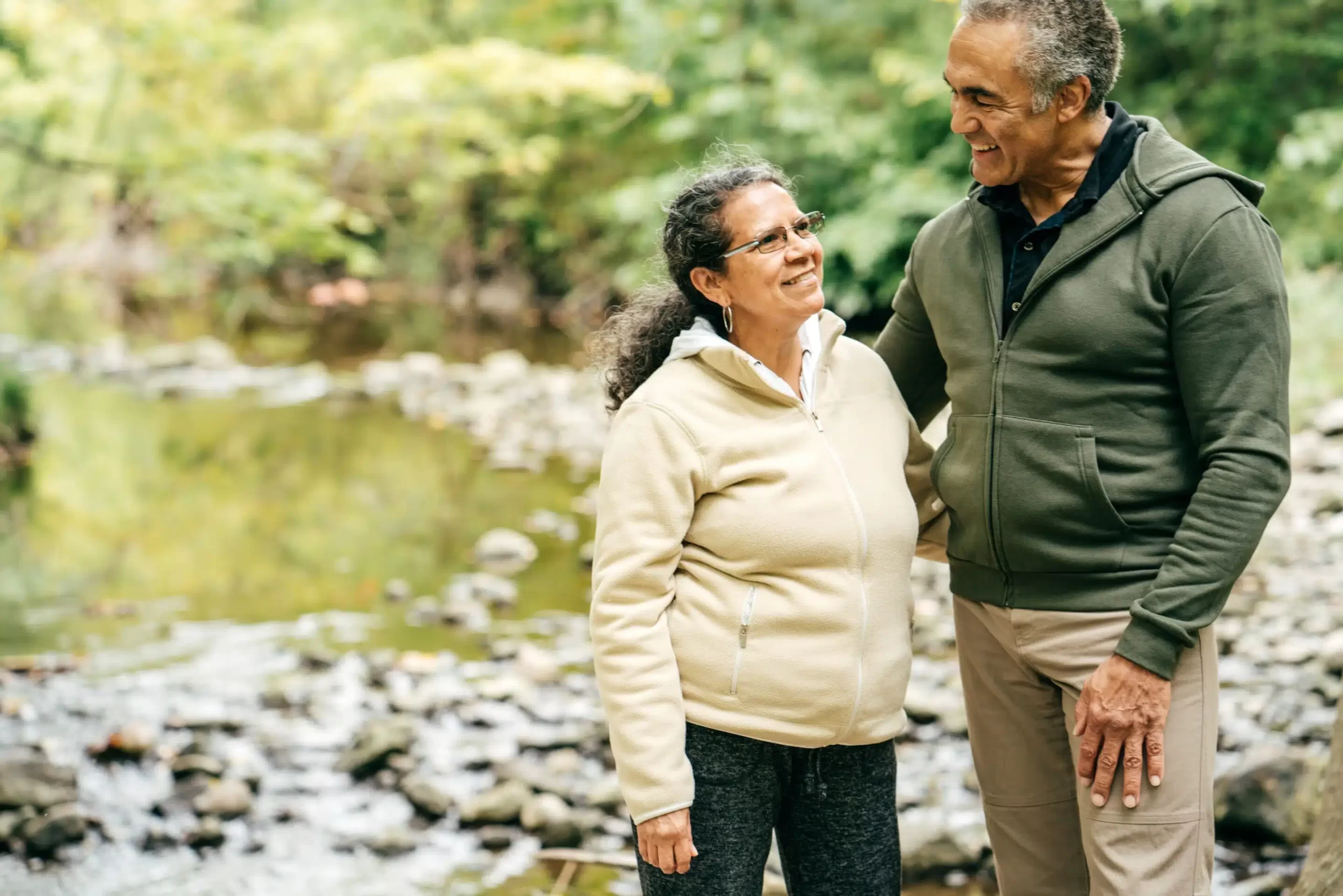Local and Indigenous governments across B.C. receive grants and capacity-building supports to develop age-friendly communities

Local and Indigenous governments across the province have been awarded $500,000 in grants and additional customized supports through the Age-friendly Communities Grant Program for 13 Plans and 12 Projects that improve community age-friendliness. The Age-friendly Communities Grant Program is being newly administered by BC Healthy Communities Society (BCHC) in partnership with the Ministry of Health (MoH) and is funded by MoH.
“Now, more than ever, age-friendly communities planning and implementation is an important step for the shifting demographics in Canada. We are thrilled to be delivering this program and working to build on local and Indigenous communities’ capacity to create and sustain age-friendly communities,” said Jodi Mucha, BCHC Executive Director.
In an age-friendly community, older adults are supported to age-in-place, living active, socially engaged, independent lives. This year, grants were offered across two funding streams to support local and Indigenous governments who are working to build age-friendly communities through equitable policies, programs, and services. Planning (Stream 1) grants will support communities in completing an age-friendly community assessment and developing an action plan. Projects (Stream 2) grants are for projects that seek to make a community more age-friendly through developing or amending policy, programs, and services.
Participating local and Indigenous governments
This year’s grant recipients and their projects are:
Stream 1: Planning
• City of Burnaby – Creation of an Age-friendly Strategic Plan for Multi-Sectoral Extreme Weather Response in Burnaby
• City of Delta – Delta Age-friendly Strategy and Action Plan
• City of Kamloops – Age-friendly Community Analysis and Planning
• City of Vernon – Vernon Community Age- and Dementia-friendly Action Plan (V-CADAP)
• City of Williams Lake – Williams Lake Senior’s Home Sharing Planning Project
• District of Central Saanich – Age-friendly Central Saanich: Assessment and Action Plan
• District of Mackenzie – Age-friendly Accessibility and Inclusion Action Plan
• Líĺ’wat Nation – Líĺ’wat Nation Elders Needs Assessment
• Nisga’a Village of Gitwinksilhkw – Universal Access and Inclusion Strategy
• Regional District of Okanagan-Similkameen – Kaleden (Area I) Aging in Place Assessment and Action Plan
• Takla Nation – Takla Nation Age-friendly Comprehensive Community Plan (CCP) Project
• Town of Princeton – Princeton Age-friendly Assessment and Action Plan
• Village of Clinton – Clinton Age-friendly Plan
Stream 2: Projects
• City of Abbotsford – Cultural Sports and Activities Exchange
• City of Courtenay – Accessibility Audits of Public Open Spaces
• City of New Westminster – Piloting the Connect and Prepare Approach for Seniors in Independent Living Residences – Ross Tower, New Westminster
• City of Penticton – Age-Inclusive Emergency Preparedness
• City of Powell River – Seniors Together
• City of White Rock – Poetry in Motion
• District of Clearwater – Rolling Along with Your Community
• District of Houston – Seniors Gathering Project
• District of West Vancouver – Building Seniors’ Resilience to Emergencies and Disasters on the North Shore
• Nazko First Nation – Nazko Community and Social Participation – Recreation Strategy
• Township of Langley – Skill and Story Sharing
• Village of Valemount – Seniors Fair and Wellness Outreach
About Age-friendly BC:
Age-friendly BC provides funding, resources, capacity-building supports and community recognition to help Indigenous and local governments, as well as other partners to build age-friendly communities. The program, originally designed in 2005 by the B.C. Ministry of Health and partners, has been updated collaboratively with, and is now primarily delivered by, BCHC. The Age-friendly Communities Grant Program is funded by MoH and delivered by BC Healthy Communities in partnership with the MoH and the Age-friendly Communities Recognition Program is delivered by the MoH. For more information and additional resources, visit our website at https://bchealthycommunities.ca/afc and sign up for BCHC’s newsletter.
